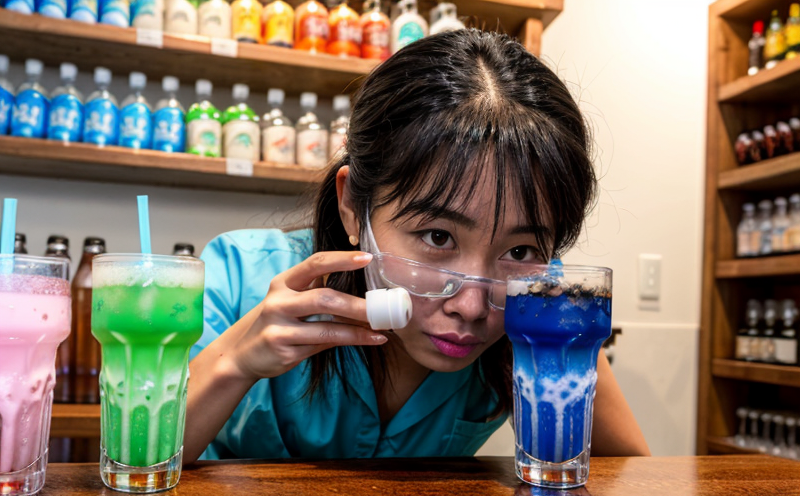WHO Foodborne Pathogen Testing in Beverage Products
The World Health Organization (WHO) guidelines on food safety emphasize the importance of preventing contamination by pathogenic microorganisms that can lead to foodborne illnesses. In beverage products, this is particularly critical as beverages are consumed directly without further cooking or processing steps. Ensuring that beverage products do not contain harmful pathogens is crucial for public health and regulatory compliance.
WHO Foodborne Pathogen Testing in Beverage Products involves rigorous laboratory analysis aimed at detecting potential foodborne pathogens such as Salmonella, Escherichia coli O157:H7, Listeria monocytogenes, Campylobacter jejuni, and others. This testing ensures that the products meet stringent safety standards set by international regulations like ISO 26164 for beverage hygiene.
The process begins with proper sampling of the beverage product, which may involve direct swabbing or pipetting from the container. Once collected, these samples are transported to our laboratory under controlled conditions to prevent any degradation or contamination during transit. In the lab, we use advanced microbiological culturing techniques and molecular biology methods such as PCR (polymerase chain reaction) to identify specific genetic markers associated with foodborne pathogens.
The testing procedure also includes several steps:
- Initial sample preparation
- Bacterial isolation on selective media
- Molecular detection through real-time PCR analysis
- Serotyping and antimicrobial susceptibility testing
| Step | Description |
|---|---|
| Sample Collection | Collection of samples from various parts of the beverage product. |
| Culture and Isolation | Growth of potential pathogens on selective media. |
| Molecular Detection | Use of PCR to amplify target DNA sequences. |
| Serotyping and Susceptibility | Detailed analysis of the pathogen's genetic profile. |
Eurolab Advantages
At Eurolab, our expertise in beverage microbiology is unmatched. Our team consists of highly qualified scientists and engineers who are committed to delivering accurate results consistently. We employ state-of-the-art equipment and follow strict quality assurance protocols to ensure reliability.
We offer several key advantages:
- Comprehensive testing services tailored to your specific needs
- Fast turnaround times for critical samples
- Interpretation of results in the context of WHO guidelines and other relevant standards like ISO 26164
- Accessible reporting formats suitable for internal documentation or external submissions
Competitive Advantage and Market Impact
EuroLab's proficiency in WHO Foodborne Pathogen Testing in Beverage Products not only ensures regulatory compliance but also provides a competitive edge. By maintaining the highest standards of quality assurance, we help our clients protect their brand reputation and meet stringent safety requirements.
Our ability to detect even trace amounts of harmful pathogens allows us to provide early warnings about potential issues, enabling swift corrective actions. This proactive approach significantly reduces the risk of product recalls and associated financial losses. Additionally, our testing results can be used as evidence for successful compliance with international standards, thereby enhancing market credibility.
Use Cases and Application Examples
- Beverage Manufacturers: To ensure product safety and maintain consumer trust.
- Retailers: To verify that the products they sell comply with safety regulations.
- Government Agencies: For monitoring compliance across industries.
Here are some specific use cases:
| Use Case | Description |
|---|---|
| New Product Launches | Testing ensures that new formulations meet all safety standards. |
| Quality Control Programs | Regular testing helps maintain consistent product quality over time. |
| Investigating Outbreaks | Determining the source of contamination during foodborne illness outbreaks. |





